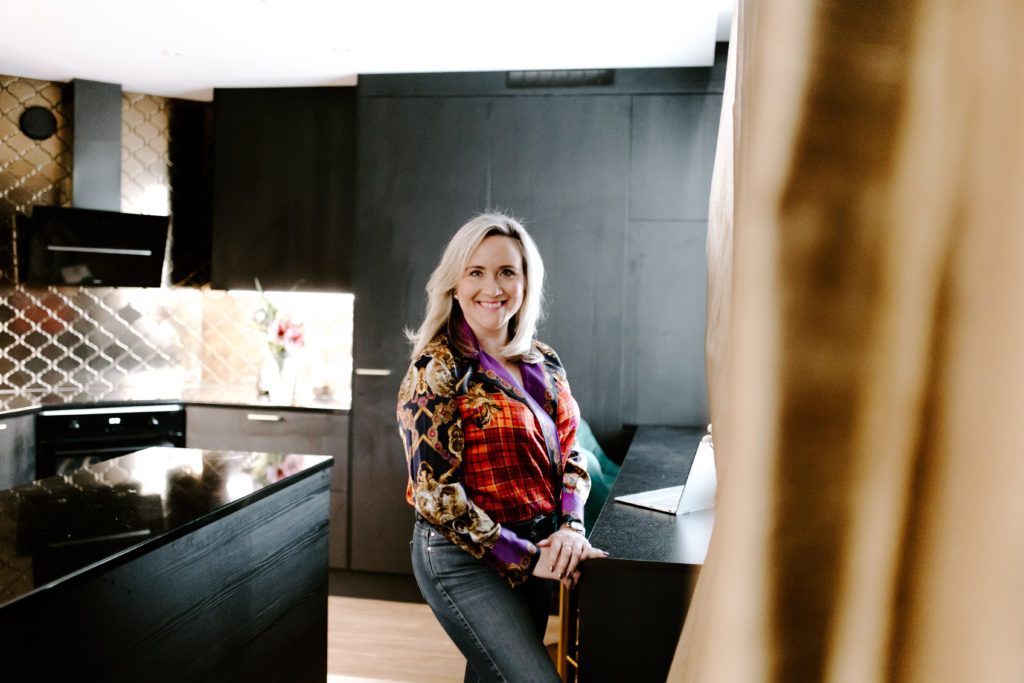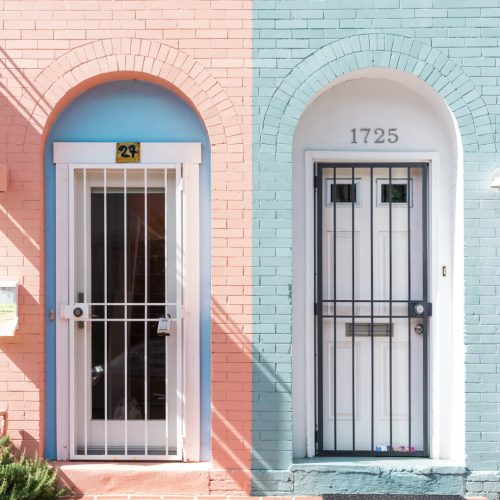Bird-nest parenting is an arrangement in which the ex-partners continue to share a house and take turns living in the former marital home as the resident parent according to an agreed schedule. This arrangement allows for children to continue living in the family home while adults change homes. How workable is this arrangement in practice? How will the dynamic change when either parent finds a new partner? Bird-nest parenting is becoming increasingly popular. However, many still have negative assumptions considering this possibility, which in reality could prove a very happy arrangement.
This blog article will look at the pros and cons of bird-nest parenting by answering the following questions:
- What does bird-nest parenting mean in practice during normal times and during holidays?
- Where do the parents live when they are not at the family home? What different alternatives are there?
- I will also share my firsthand experiences of bird-nest parenting with my ex-husband: How did we organise our lives after divorce? How did our children experience it?
- Is it possible to share a home with the ex and on what terms?
- When is the arrangement a good option and when is it not going to work? When do I not recommend bird-nest parenting?
- Is it going to be very expensive having multiple housing costs to cover? (Not necessarily, and I will give you a budgeting examples that show it could work!)
- How will the children feel about their parents taking turns living in the same family home?
- Does bird-nest parenting mainly benefit the children and your respective bank accounts or are there other benefits to be had from the arrangement as well?
- How does bird-nest parenting affect your chances to live and start dating as newly single?
- Other people’s opinions: Are people going to be judgmental?
- How will the dynamic change when either parent finds a new partner?
- Could you test the arrangement risk-free before committing to it?
- What can couples who are happy living together learn from the bird-nest parenting?
I will also share some examples of how much bird-nest parenting will really cost, depending on whether you own or rent your home.
Bird-nest parenting raises eyebrows: Divorced couples sharing the family home is still a novelty
I have been asked by members of the public as well as newspaper journalists, how bird-nest parenting actually works. The obvious curiosity towards the arrangement inspired me to write this in-depth blog on the issue. I have also touched upon the topic is my book and a number of interviews.
I have shared my time between 2–3 homes for a period of 5 years. So, I know from personal experience what it takes to make bird-nest parenting work.

It is not for everyone, but if you are interested, do give it some serious consideration, as it can offer numerous benefits for all concerned!
Some feel they could never share a home with their ex – never mind how much the children would benefit from it. This is perfectly understandable. But there is always an exception to every rule. In this article, I’m sharing my views of when bird-nest parenting, an arrangement in which the parents take turns living in the family home with the children, is a good idea and what it requires to work.
Give bird-nest parenting some thought instead of dismissing a viable alternative
The biggest reasons why anything unusual is seen as problematic or scary are the prejudices and unfounded assumptions that we all hold. This goes for bird-nest parenting, too. Therefore, don’t dismiss this perfectly viable alternative quite yet just because you think it might be difficult or impossible. At least give it some thought or even a try first.
In my experience, many modern, educated people have surprisingly archaic attitudes towards how a family’s living arrangements should be resolved after divorce. This is clearly a taboo that merits some investigation. It is always useful to have the courage to look at the world – including the way we organise our co-parenting with our ex – with an open mind.
I will also dedicate some of this article to discussing the reasons why many couples reject best-nest parenting as an option without giving it any serious thought. I will also show how bird-nest parenting can be useful on many different levels and how it need not become an excessive financial burden.
So, what does bird-nest parenting mean in practice?
The typical pattern in co-parenting and shared custody is that the children share their time between two households, taking turns living with both parents. This model has become an established and accepted routine. A less common model is the one in which it is the parents and not the children who change houses every other week.
Sometimes this model is known as “the Swedish model”. The model is becoming increasingly popular among divorcing couples, at least as a temporary arrangement before arriving at a satisfactory permanent solution.
One of the pros of the model is that it lets the children continue to live in their own home despite the change in their parents’ status. The parents take turns living in the family home according to an agreed schedule. For the remaining time, the parents live in a second home, which can also be shared between the two, or then both have their own second homes.
Each of these alternatives have their pros and cons, which I will discuss later in this article. Before you make up your mind whether bird-nest parenting is for you, read this article so you can avoid unnecessary mistakes!
Bird-nest parenting: Where do the parents live when they are not at the family home?
There are many ways for organising the second home or homes for the parents to live in while they are not at the family home.
The parents can also share the second home, and take turns living in it, or they can have their own second homes.
If the parents can live together without major problems in the family home, chances are they can do it in their shared, smaller second home after divorce.
However, it could also be necessary for your life as newly single to keep your second home an ex-free zone. Either option can work but remember that sharing the second home is not as mystifying as it might seem.
My experiences of bird-nest parenting: How did we organise out living arrangements after divorce?
If have described the way we organised our lives and housing after divorce in my book as well as several newspaper and magazine articles. Below is a summary of what I learnt along the way. I hope my observations will help you find a model that suits your family, as long as you remember that you are free to make your own decisions.
After my husband and I divorced, our children continued to live in our old family house. My ex and I took turns living in the house, alternating every 3–4 days at first and then on a weekly basis.
My second home was a spacious and airy one-bed flat in a block of flats not too far away from the children’s home.
It was nice to have my “little home” (I didn’t call it my “second home”) exclusively to myself, where I could go whenever I wanted. As I did not share the flat with my ex, we did not have to agree when or if I could go home. I could drop in during the day and whenever without being dependent on my ex’s schedule.
This was important to me, because the only reasons for me to choose bird-nest parenting were my children and the financial sense that the arrangement makes. I did not want to share any other aspect of my life with my ex.

My experiences about bird-nest parenting: When is it a good option?
Bird-nest parenting served us really well for a few years, because we were very similar when it came down to cleanliness and keeping the house tidy, so there were no petty arguments in that respect.
I did not care if my ex’s clothes were mixed with my son’s laundry – I just loaded the washing machine without really keeping track whose clothes went in. Everyone was responsible for folding their own laundry when it was dry. Of course, it might be a great idea to have dedicated laundry baskets for every household member, if doing the ex’s laundry even occasionally feels unfair.
We both kept the house clean and tidy so that even if we occasionally forgot our personal possessions lying around, it would not irritate either party and would not cause any arguments. Both looked after their own stuff and their own cupboards just like when we were married. Bird-nest parenting does not require complicated logistics of parents having to haul their stuff back and forth between houses.
I had a reserve of clothes, shoes and jewellery etc. in both of my homes. And I bet you any money that a typical western individual owns a surplus of everything, enough to be split between two homes!
Everything went smoothly between my ex and I, until after three years, the situation changed and it was time to rethink our living arrangements.
Bird-nest parenting is not everyone’s cup of tea. When is bird-nest parenting not a good idea?
Our life situations eventually changed and so my ex-husband and I agreed to change our living arrangements. For three years, bird-nest parenting had proved an ideal solution for us. Therefore I’m confident in promoting it as something you and your ex could give a go. At least to begin with, until your lives settle a bit more after the divorce.
Bird-nest parenting is not suitable for every situation and person, and it does take effort and certain conditions to work:
- Both you and your ex need to be flexible and open-minded.
- There is no room for jealousy in this model.
- Instead of nitpicking, keep your eye on the big picture, the reasons you chose to do this in the first place.
In bird-nest co-parenting, you will need to feel confident and have mutual trust.
If and when new partners step into the picture, they must also be able to feel secure and not be jealous of the arrangement. “Oh my god my partner is still technically sharing a bed with their ex!”, is not useful or truthful thinking in this situation.
Issues surrounding who owns what with whom can quickly escalate into one big drama if you don’t keep your focus on the things that matter, such as the happiness and wellbeing of the children and the financial advantages of the arrangement.
In real life, the arrangement will run more smoothly if both parents naturally have similar standards of cleanliness or if a mutually acceptable standard of housekeeping can be agreed on and adhered to by both parents.
And if the mess created by your ex or current partner, let alone your current partner’s ex and their children irritate you to distraction, I can recommend effective NLP and hypnosis exercises to help you get some peace of mind! Did you know that it is possible to train your mind not to react negatively even if your ex still has the habit of leaving breadcrumbs on the table.
What I’m saying is that if you both have the will to make it work, there will be a way.
Living in the family home with the children that I love – and in my own home that I love
Bird-nest parenting starts with finding places to live, own or rented. Reserve more than a couple of days for house hunting, so that you both can find the right little homes for yourselves, or perhaps even a shared second home.
I remember how I stepped in the lift of the high-rise block that took me to my new flat, where my lovely new landlord showed me around, and how it felt taking in the sweeping views.
And I still remember first New Year’s firework displays I watched from the comfort of my own little home!
My own space, my independence.
I loved that flat. It was like a place close to heaven that sealed my freedom.
Some asked me, which of the homes was more of a home to me, my flat or the family home. I loved them both.
Our old house was the one I had designed myself and built with my ex with great care and love. All our children were born and grew up in that house. All those lovely family celebrations and parties, all those wonderful memories from the years when we were happy together.
I find it invaluable that our children got to spend another three years in our house even after we were divorced. I was happy to make compromises on my own creature comforts.
However, I loved my little flat as well. It was all mine, a clean slate untarnished by memories, nothing but the future to look forward to and the moment at hand to live. My children stayed overnight a few times. At New Year, we watched the fireworks together, sat on the sofa with my darling boys in my arms.
My sons each gave me a potted plant they had chosen. These plants would greet me every time I stepped through the door. I had my sons’ pictures around my flat: my sons were with me even when I was home alone in my own little flat, in peace and quiet.

In my little home I could live like the free single woman that I was.
My book was born in that flat, and I learnt a host of valuable things during those years. And I made lots of new, dear friends. Bird-nest parenting with my ex was also a rewarding learning experience. I still find all those aspects of my life extremely useful and precious.
What does “home” mean to you if you have two of them? I called my homes the “old home” and my “little home”. Sometimes I referred to them by the address, so that people knew from which home they could reach me. I was equally at home in both of them. And yet they were very different.
How will the dynamic change when either parent finds a new partner?
I rented my “little home”, which gave me some welcome flexibility in terms of future plans, once things started changing. When I moved in together with my current partner, I gave up my little home. However, we still continued bird-nesting with my ex even after that.
Instead of my bachelorette pad, I spent every other week cohabiting with my new partner and every other week as the resident parent in “the old home”. Meanwhile, my new partner had hid children over for those days when I was away living with my boys.
The weekends that both had their kids with them, we spent in either house. This shows that even if you have a new partner who also has children, bird-nest parenting can work. After we gave up bird-nest parenting with my ex, I have continued to spend the weekdays with my children in a new home I bought nearer to my “old home” while also sharing a home with my current partner.
I have continued to share my time between two homes because I find it practical.
Both sets of children have been able to stay in an area familiar to them (think schools, hobbies, friends) and as a bonus our relationship stays fresh longer because we have our space both from each other and the hectic life of a blended family. I suspect that all too many blended families hit the rocks because the loved-up couple moves in together too soon.
My current partner was happily not put off by our “unusual” living arrangements. He was quite at ease in our old house, where there was plenty of space for a blended family of seven. He didn’t mind that my ex lived in that house when we were not there. He didn’t mind either that I share my time between our house and my own place with my boys. We like not having to stay in one place all the time.
Bird-nest parenting is a practical option for blended families. It just takes the right mindset and focus on the best possible outcome in the long run.
Are people going to be judgmental?
Of course, many people are sceptical and confused by our decision. I don’t mind questions, instead I’m happy to answer them because I know this is the right solution for us. If I were less sure of myself or my divorce, probably other people’s doubts and questions would have affected me more easily. With less confidence I might have given up my two-home tactic even though it really works for us.
Some make decisions about their living arrangements pressured by others and traditions and not based on their own needs and values. Decisions that are made out of fear and not love seldom succeed.
Not everyone has the tolerance and broadmindedness to understand that you can be just friends with your ex and still share the ownership of a house and all its furnishings. And it is understandable that some people don’t get it.
I have always been used to the idea of sharing a space with others while I’m not there: we had a ski chalet that we rented out with my ex for years. You have probably stayed in a rented holiday accommodation and stayed the night at your friends’ house. That’s nothing strange. It’s completely normal. The fact that the parents take turns living in the same house is no different from that, although it is not that commonplace yet.
Bird-nest parenting & Airbnb - A good combination!
We rent our shared home with my current partner to others when we are away. Many families make extra income from platforms such as Airbnb. I’m sure that the new way forward is for more and more exes to be able to take turns living in the same place, provided that both have appropriately processed their divorce and feel secure in themselves and their newly found freedom.
If, however, you can’t see the shared home just as the children’s home and a place where you live with them some of the time and, instead, the family home gives rise to all kinds of emotions, bird-best parenting may prove too painful. Some will be ill-at-ease in a place where they know that their ex and possibly their new partner stays when they are not there.
Personally, I don’t care if other people stay in my ski chalet and if necessary I’ll clean up after them without giving it a second thought. So why would I care if my children’s other parent and their new partner lives in a house I live in some of the time? In fact, I know my ex and their new partner probably much better than the strangers I rent my ski chalet to.
What’s your opinion?
Comments made by single men – How does bird-nest parenting affect dating?
When I was dating men while newly single, some found it impossible to get their head around my family’s living arrangements. Some men wrote me off at once after learning where and how I lived.
They just made me laugh. Some were simply surprised but others could criticise me quite aggressively. They spoke with authority even though they had no experience of anything similar. I found that hilarious. I was curious and wanted them to explain their opinion a bit more so that I could understand where they were coming from, although their initial judgmental reaction really told me they were not partner material for me.
At the least these dates were entertaining! Some were happy to date me on certain conditions: “You seem like a great lady but you should stop sharing the house with your ex if I was to date you.”
Were I more easily swayed, those mean words could have made me change my mind about my choices.
If I were less confident with our decisions or if those men had meant more to me than they did, I probably would have felt offended or hurt.
But I don’t make decisions about my or my children’s life based on other people’s opinions, and I suggest you don’t either.
Naturally I listen to other people’s opinion and am usually curious to hear more, because I want to understand where someone’s black-and-white beliefs might stem from.
After all, we are all entitled to our opinions and I don’t expect other people to do as I do.
People make their own decisions for a reason.
All I hope is that people are conscious of their reasons and take all options into consideration and don’t discount any avenue just because it’s against stereotypes or people’s expectations.
Bird-nest parenting divides opinions and that’s why it is a great topic of discussion on a first date!
The reason I have any time at all for judgmental black-and-white thinkers is because I find them fascinating – and because their reasoning is so interesting. People’s ideas tell a lot more about them as persons than the way they choose to live. People who know me know how persistent I can be asking questions when in a conversation with another person. 🙂
Hearing the reactions to our “unusual” choice of living arrangements after divorce has also served as a shortcut into the inner feelings of the men I have dated, as well as their values and world view. That’s why I was keen to tell them very early on about the way my ex and I were choosing to look after our kids.
Read more about my experiences in the world of dating: A GOOD ONLINE DATING PROFILE: How to create a good online dating profile?
How do children experience bird-nest parenting?
The point of bird-nest parenting is to allow the children to live in one home, and let the parents do the rotating instead. The situation is technically not much different to a family in which the parents both travel a lot for business. It’s not ideal for the children, but for many families it is the reality.
When couples divorce, it is usually the children who have to travel between two homes. Since the family where the parents are divorcing will be spread between at least two homes, anyway, wouldn’t it be easier for the children to be the ones who stay put while the parents shuttle between two places. This model has also been promoted by noted child psychiatrists, as discussed in my other blog article about 50/50 shared residence (when children have two homes).
Life in three homes, actually.
My children loved living in their childhood home but were also excited about “trips” to my “little home”. Now that we are no longer bird-nest parenting with my ex and the children split their time between my ex’s and my home on alternating weeks, the children have adapted and are happy in both their homes.
Or actually in our case in their three homes: my children also enjoy staying at the house I share with my partner and his children.
Likewise, my partner’s children enjoy staying in my house occasionally, although they mainly live with my partner in our shared home or with their mother.
All arrangements work if you make them work. There is no one right solution, and shared residence can be feasibly arranged in many different ways. Your solution will be a good one provided that it is well-considered from all perspectives.
Every parent and every child is different. All I can say is that my experiences of all the arrangements we have tried have been positive.
Bird-nest parenting may not be a lasting solution because the parents move on and new life situations require different arrangements.
In my opinion, it would have been ideal if our children could have continued living in their childhood home until they fly the nest, but sometimes changes in circumstances call for changes in living arrangements. That is understandable. Nothing stays the same in life and all changes are part of a good life.
The main thing for the wellbeing of children is that whatever the living arrangements are they should be planned with the best interests of the children in mind and with love, based on a mutual agreement between the adults.
The changes should be planned well in advance and agreed between the two parents. It is not fair that one of the ex-partners suddenly and unilaterally announces a change in plans as soon as they hook up with a new partner or their new partner suddenly changes their mind. Each party must give each other plenty of time to adapt to changing circumstances. All bird-nest parenting exes and their new partners should be aware of that.
When the parents are able to support their children with love and in mutual understanding through whatever changes come their way, children will feel secure regardless of having parents who divorced.
Is it going to be very expensive having multiple housing costs to cover?
Usually, having a large family home is more costly than a smaller one or two-bed flat. In bird-nest parenting, what is needed is one larger family home, where the children live permanently and, at minimum, one smaller second home for the adults. In other words, it is possible to keep the housing costs substantially lower with this arrangement than by two parents both acquiring large family homes to accommodate the children every other week.
If the parents agree to share the smaller second home and take turns staying in it, that flat can be however small and therefore less expensive, as it only needs to house one adult. This solution will be considerably less expensive than both parents running a family home suitable for children. If the parents choose to have their own second homes, this will of course increase the housing costs accordingly.
I have made some calculations based on all these scenarios below.
Most couples with children who divorce end up buying or renting two larger homes, one for each parent and the children. The bird-nest parenting arrangement could save the parents a considerable sum of money or, alternatively, allow for three homes, one family home and two small flats, at the price of two larger family homes. In other words, bird-nest parenting can be financially quite helpful.
In the following, I’m giving some examples of how bird-nest parenting can be organised with own and rented accommodation.
Example 1 – How much does bird-nest parenting cost when the parents own the homes
If both parents buy their own second homes, the two smaller flats will probably cost no more than one large family home.
If the parents are willing to share the second home, bird-best parenting will be considerably less costly than the traditional model in which both parents buy family homes and the children share their time between the two homes.
I made some calculations:
- The traditional model: If both parents have a large family home, costing e.g. 300,000 euros each, the total outlay for the model in which the children travel between two homes comes to 600,000 euros.
- Bird-nest parenting scenario A / two homes: If the parents share the family home (300,000 euros) and the smaller second home (e.g. 150,000 euros), the total outlay for this scenario is 450,000 euros.
- Bird-nest parenting scenario B / three homes: If the parents share the family home (300,000 euros) and both parents have their own second homes (150,000 euros each), the total outlay is about the same as with the traditional 50/50 shared residence model.
Example 2 – How much does bird-nest parenting cost when the parents rent
How expensive is bird-best parenting in terms of housing costs if both parents rent?
I also made calculations on what the various models would come to cost if the parent rent:
- The traditional model: If both parents rent a large family home, costing e.g. 1,500 euros pcm each, the total cost for the model in which the children travel between two homes comes to 3,000 euros pcm.
- Bird-nest parenting scenario A / two homes: If the parents rent the family home (1,500 euros pcm) and a smaller second home which they also share (e.g. 700 pcm), the total rental costs in this scenario are 2,200 pcm.
- Bird-nest parenting scenario B / three homes: If the parents share the family home (1,500 pcm) and both parents rent their own second homes (700 each pcm), the total rental costs are about the same as or a little less (2,900pcm) than with the traditional 50/50 shared residence model.
What other benefits does bird-best parenting offer?
It is obviously more convenient for the children two live in one place. Their environment stays the same, familiar and safe. Children will experience fewer changes as a result of the divorce if their can stay living in the family home.
All the children’s clothes and belongings are clearly in one place and not two. They don’t need two sets of everything, such as clothes, bikes and toys, and there is no need to endlessly carry stuff back and forth. This saves money, not to mention time and energy and everyone’s nerves.
I divided my clothes and other personal belongings between my two homes, so I seldom needed to carry things around, only things I rarely needed, such as party outfits. And I noticed, that dividing my clothes between the two homes, my wardrobe was used much more efficiently because I only had half of it at my disposal!
Of course it would be easier for an adult as well to have their belongings in one place, but I think it was still easier for me to carry a few belongings back and forth than to to plan and pack things for a week ahead for three active boys.
Bird-nest parenting is something you can start practicing before the divorce takes place!
If you and your ex are splitting up in good and friendly terms and are able to work together for the benefit of your children, I warmly recommend bird-nest parenting.
If the idea interests you at all, why not try it out before anything is finalised. Perhaps use the reconsideration period and rent a flat alongside your family home and give the system a try. Who knows, maybe you will change your mind about divorcing once you have a period of “practice separation”! It is important that both parents have their own time with themselves and sometimes putting a bit of distance between you and the family situation actually strengthens your sense of togetherness.
Having your space is almost like being away for business – it doesn’t have to be more complicated than that. Practice separation allows you to genuinely see how it feels to live alone with the kids as well as by yourself in your own home. Changing places may also give you the much needed opportunity to analyse your thoughts and feelings that have become one big mess under the pressures of breaking up.
With all that in mind, I do encourage you to give bird-nest parenting a serious thought!
If sharing a second home with your ex is not an option, at least consider the three-home model. If you both find that the advantages of the arrangement outweigh the disadvantages and if you can give each other the freedom to live in a shared family home without nagging and interfering, I am certain that the solution can work for your family!
Financial considerations will decide whether you opt for your own respective second homes or a shared second home. Do consider all options with an open mind and simply ignore the preconceived ideas that people around you might have.
Keep smiling and just laugh if people can’t get it 🙂
And trust me, an open-minded, practical shared parenting scenario makes for an excellent topic of discussion on your first date with a potential new partner. Don’t be afraid of making your own ideas and choices a good example of how to raise your children with love without fearing the opinion of others.
Thanks for reading this article – do share it on social media with your family and friends! Let’s challenge old, unhelpful taboos and spread happiness throughout your sphere of influence! Perhaps you know someone who is considering a divorce but has not yet told you about it.
I wish you all the happiness and joy in your life, regardless of your relationship status and living arrangements! 🙂

With Love,
your coach Kati
Clinical hypnotherapist, NLP Trainer, Author
[email protected]

Friends with your ex: How to stay friends after breaking up?
At first, being friends with your ex after a painful break up can be hard. But it can be done – find out how!

BEYOND BREAK UP BLOG: Life after a breakup – How to survive a divorce?
Beyond Break Up blog helps you reach a decision about breaking up, survive the break up and start a new life as a happy single. SURVIVING BREAK UP

(R)evolution for Love – The Book
* I have selected every editorial product for your benefit. Sometimes you may get some discounts and I may receive a share from purchases made

“FIVE STARS!” Book reviews: (R)evolution for Love (Amazon Books)
“Five Stars!” Editorial reviews and reader reviews of (R)evolution for Love – A Better Relationship or a Brilliant Break Up? Amazon books


























